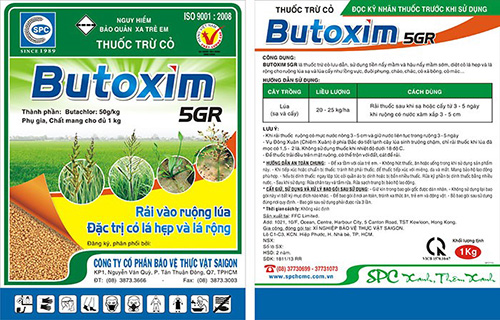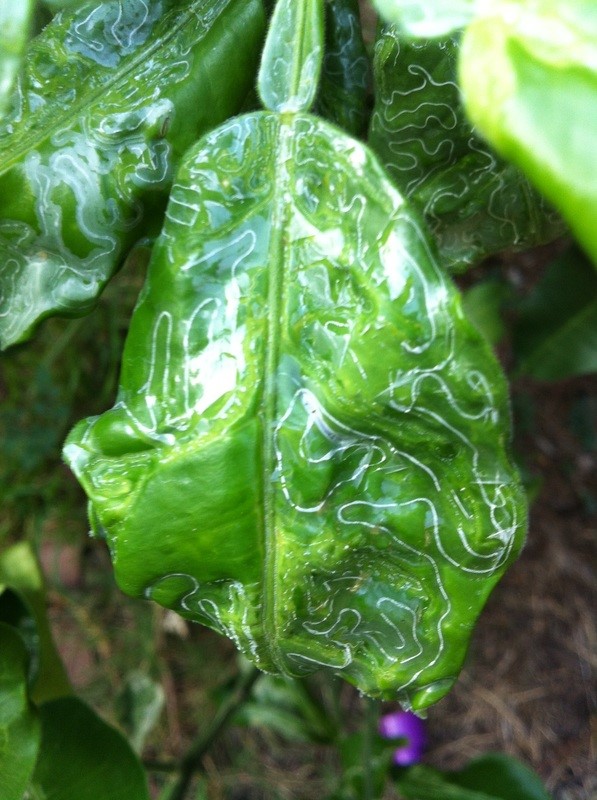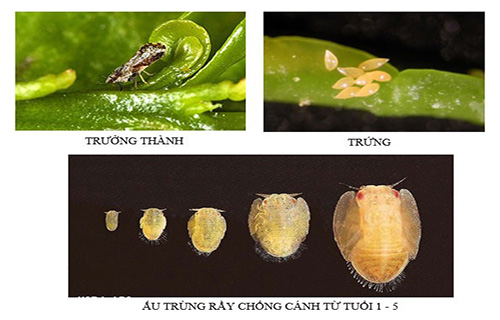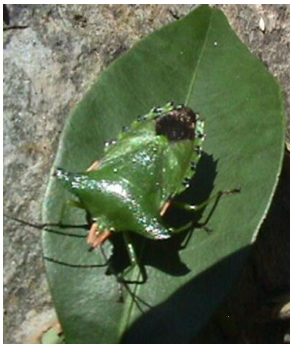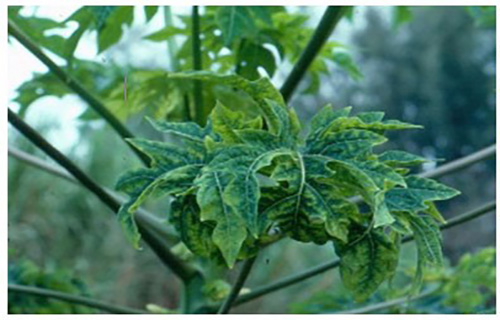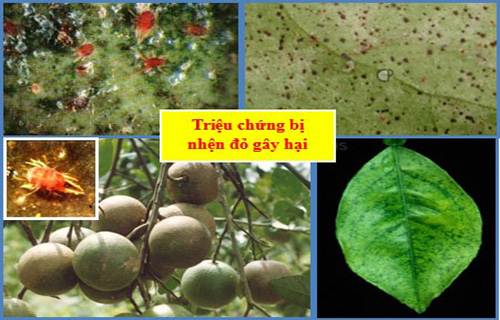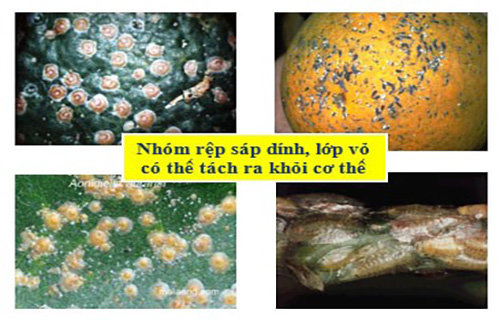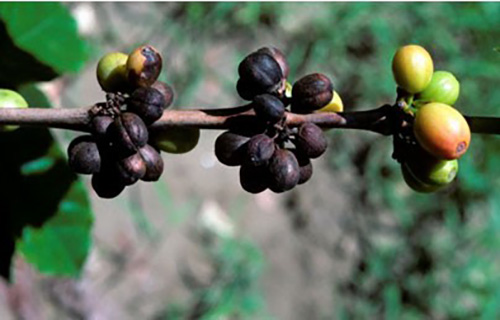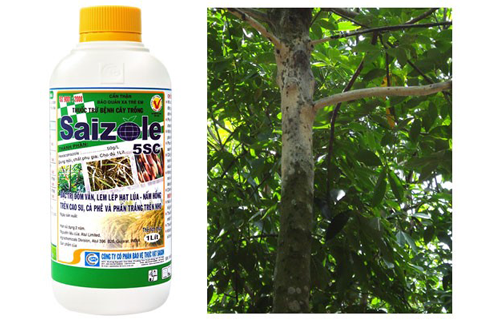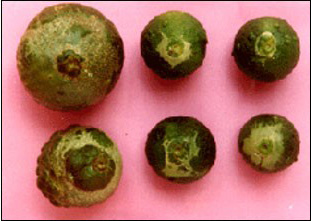|
HAZARDS OF MOSQUITO BUG AND PREVENTIVE MEASURES
26/05/2022
HAZARDS OF MOSQUITO BUG AND PREVENTIVE MEASURES Mosquito bugs are polyphagous insects, causing common damage on industrial crops such as cashew, pepper, tea, coffee ..., fruit trees such as green-skinned grapefruit, custard apple, avocado, etc. In addition to causing direct damage caused by sucking bugs .The sting will cause the leaves and flowers to dry, the young fruit to fall.., the sting also creates conditions for the growth of fungi, especially the fungus that causes anthracnose to invade, which will cause more serious damage and make prevention and treatment difficult,costly. Biological properties Mosquito bugs have scientific name: Helopeltis sp, belonging to the order of Hemiptera, family of Miridae, morphologically, mosquito bugs have an elongated body, long antennae beyond the body, and a characteristic small club on the back and among species. have different colors.
The mosquito bug has a life cycle of about 40 days, after emerging out its cocoon , they mate one another, about 3 days later, the female lays 50–60 eggs, the eggs are small, white, sporadically or in clusters of 2–4 eggs on the veins. leaves, branches, young fruit, larvae have 5 age levels, newly-hatched live concentrated in young parts, young bugs resemble adults, adults move slowly, prefer to live in groves and bushes and cause damage in early morning or dusk. Mosquito bugs cause harm by using needles and stings on young plant tissues such as leaves, flowers, flowers, and young fruit to suck sap , because the saliva contains toxic substances, causing the sting to have black spots (the spots are large or small depending on whether the young bugs or the adults cause harm), leaves are deformed, curled, dried flower, fallen, on the fruit (grapefruit, custard apple) the sting leaves scars, concaves that reduce the commercial value of the fruit, in addition to causing harm directly, the sting also creates conditions for the fungus to penetrate, so the damage is more severe and causes confusion when identifying and preventing. Mosquito bugs are suitable for temperatures from 25–28 degrees, humidity over 90%, cool, murky, hot and humid weather. In general, mosquito bugs can live and cause damage all year round, but in the rainy season and especially when the tree has leaves, buds, flowers, young fruit, bugs will appear and cause serious harm.
Prevention: It is necessary to apply integrated measures such as: (1) After harvesting, it is necessary to cut off and destroy ineffective branches and diseased branches. (2) Clear weeds in and around the garden. (3) Planting at a moderate density, not planting thickly. (4) Balance fertilizer application, pay attention to increase the amount of potassium and phosphorus fertilizers. (5) Smoke repels bugs in the early morning or cool afternoon. (6) Spraying: Pay attention to visit the garden regularly for early detection and timely prevention. Especially the period when the tree produces leaves, buds, flowers and young fruit. Use Comda 250EC to prevent tea bugs. Pay attention to alternate spraying, early morning: 6-7 hours or cool afternoon: after 4-5 pm. In addition, depending on the type of crop, you can use products such as: Saliphos 35EC, Sherzol EC, SecSaigon 10EC, Comda gold 5WG, SK mineral oil or Brimgold 200WP. |
To prevent, in addition to plowing and burying weed seeds, collecting weed stalks and stumps left after tilling the land to burn, not letting weeds produce seeds in production fields, etc., the use of chemical products is still a measure. optimal because of its ability to thoroughly kill weeds, reduce labor and take advantage of more time than manual weeding.
Miner has the scientific name Phyllocnistis citrella Staint., family Phyllocnistidae, order Lepidoptera. The miner occurs in many countries in the tropics and subtropics. The main host of the miner is the citrus family - Rutaceae. In addition, the miner also attacks mangosteen and some other plants.
Adult is a small planthopper, with a body 2-3 mm long, the whole body is ash gray, slightly greenish, the wings are opaque with many small brown spots.Eggs are oval, 0.3 mm long, have a pointed end and are attached directly to the leaf surface, leaf axils.
Green bugs specialize in the fruit of citrus groups (oranges, tangerines, lemons, grapefruits, kumquats...), some people call them orange bugs, or orange suckers. Their scientific name is Rhynchocoris poseidon or Rhynchocoris humeralis.
In Vietnam, yellow leaf curl disease is very common on papaya trees, especially the disease is often severe in areas of high and continuous planting, areas with hot and arid climates. The disease has significantly reduced the yield and quality of papaya. Gardens that are infected early when the plants are young may not yield. However, up to now, many gardeners still do not know the cause and how to fix it.
Spider mites are common pests on citrus trees, especially in hot and dry climates that are suitable for spiders to grow and cause severe damage.The group of harmful spiders is usually very small in size, unlike the natural enemy spiders.
This group includes species that are generally very small in size, causing damage by sucking plant sap (on leaves, fruits, branches, stems).
There are many species of mealybugs present on the group of Oranges,Tangerines,Grapefruits and Lemons (Citrus), which can be divided into 2 groups:
+ Group of sticky mealybugs with common varieties such as Lepidosaphes, Aonidiella, Coccus and Saissetia.
+ Group of flower mealybugs with common genera and species such as Pseudococcus, Planococcus and Icerya purchasi.
Dry branches and berries disease often appear to be common damage on coffee gardens during the rainy season. The disease causes death of branchs, dry fruit, severely affects the canopy structure and coffee yield if not paid attention to prevention.
Pink disease commonly causes diseases on rubber plantations in the rainy season, especially on garden from 4-8 years old. This year, rubber has to go through a period of severe drought, weakening the tree, so now in tnshe rainy season it is easy to get infected. Therefore, it is necessary to pay attention to good management to avoid affecting the garden.
In recent years, the area of citrus has been expanded because it is a fruit tree with high economic efficiency. However, in order to sell at a high price, not only in quality but consumers also require the external beauty of the fruit, so pest management on citrus is a matter of great concern to farmers. The hot season is a favorable condition for thrips to develop and cause damage, affecting the commercial value of fruit.
- Headquarters
- SAIGON PLANT PROTECTION JOINT STOCK COMPANY
- RQ 1, Nguyen Van Quy St., Tan Thuan Ward, HCM City
- Tax code: 0300632232
- Tel: (028) 38 733 295 - 38 732 077
- Fax: (028) 38 733 003 - 38 733 391
- Website: www.spchcmc.vn - Email: info@spchcmc.vn
- SAIGON PLANT PROTECTION COMPANY
- SAIGON PLANT PROTECTION JOINT STOCK ENTERPRISE
- Lot C1-C3 Hiep Phuoc Industrial Park, Hiep Phuoc Commune, HCM City
- Tel: (028) 3873 4089 - Fax: (028) 3873 4086
- Affiliated Unit
-
- Quick Links
- Home
- About us
- Career Opportunities






